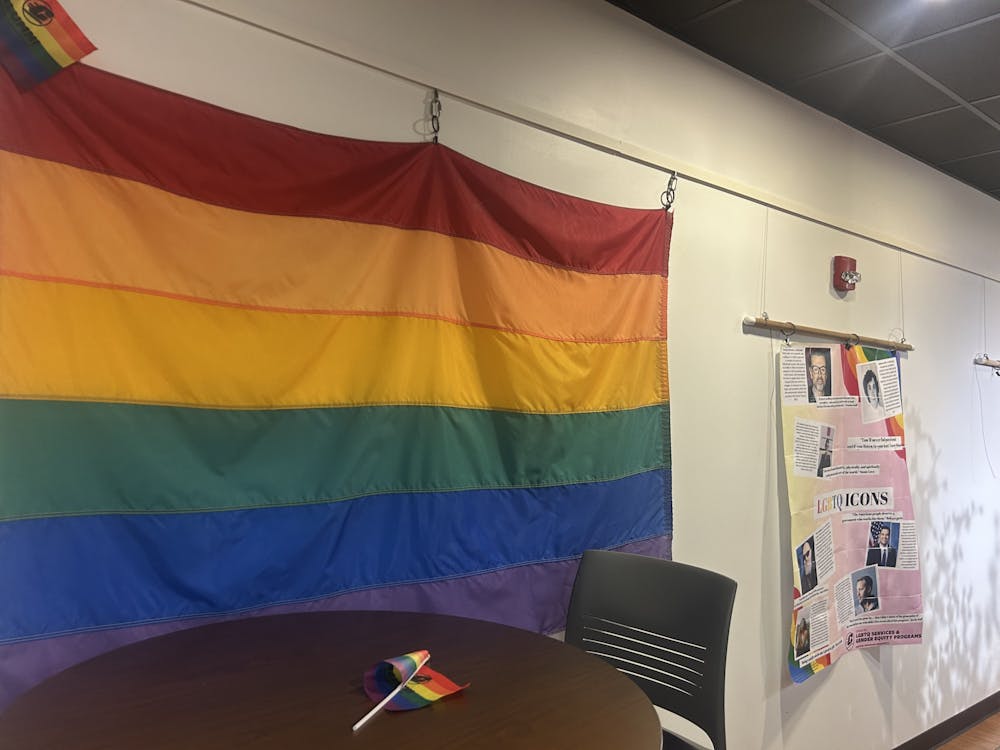CMU to recognize National Youth HIV/AIDS Day with educational event

LGBTQ+ flag decorates the Center for Student Inclusion and Diversity at Central Michigan University, where the Gender and Sexuality 101 presentation took place on Oct. 21.
Central Michigan University students will have the opportunity to learn about HIV prevention, testing and safe sexual practices during an event recognizing National Youth HIV/AIDS Day from 11 a.m. to 1 p.m. on April 10 in the Central Eats Lobby of the Bovee University Center.
Bee Taylor, director of LGBTQ+ Services and Gender Equity Programs at CMU, said National Youth HIV/AIDS Awareness Day is an annual observance aimed at raising awareness about the impact of HIV/AIDS on young people, while highlighting the importance of prevention, testing and education.
“It encourages open dialogue about HIV prevention and aims to reduce stigma around the virus, particularly in marginalized communities, including the LGBTQ+ community,” they said.
They said recognizing the day on CMU’s campus is especially important to create a more informed and supportive environment for students.
“Students can learn about HIV prevention, connect with resources and advocate for each other’s health and well-being,” Taylor said.
The event will feature an educational booth with information about HIV prevention, safe sexual practices and the importance of regular testing. Students can participate in interactive activities, ask questions and engage in discussions about sexual health and HIV prevention. Outreach efforts will focus on encouraging safe behaviors and connecting students with campus and community resources.
Taylor said awareness and education are critical, especially for young people and those within the LGBTQ+ community who are disproportionately affected by HIV.
“Young people, especially those in college, are often in the process of discovering their sexual identity and may not be fully informed about sexual health risks,” Taylor said. “The LGBTQ+ community face higher rates of HIV transmission due to a variety of social, economic and healthcare access barriers. Awareness and education can help prevent the spread of HIV, reduce stigma and promote healthier communities overall.”



